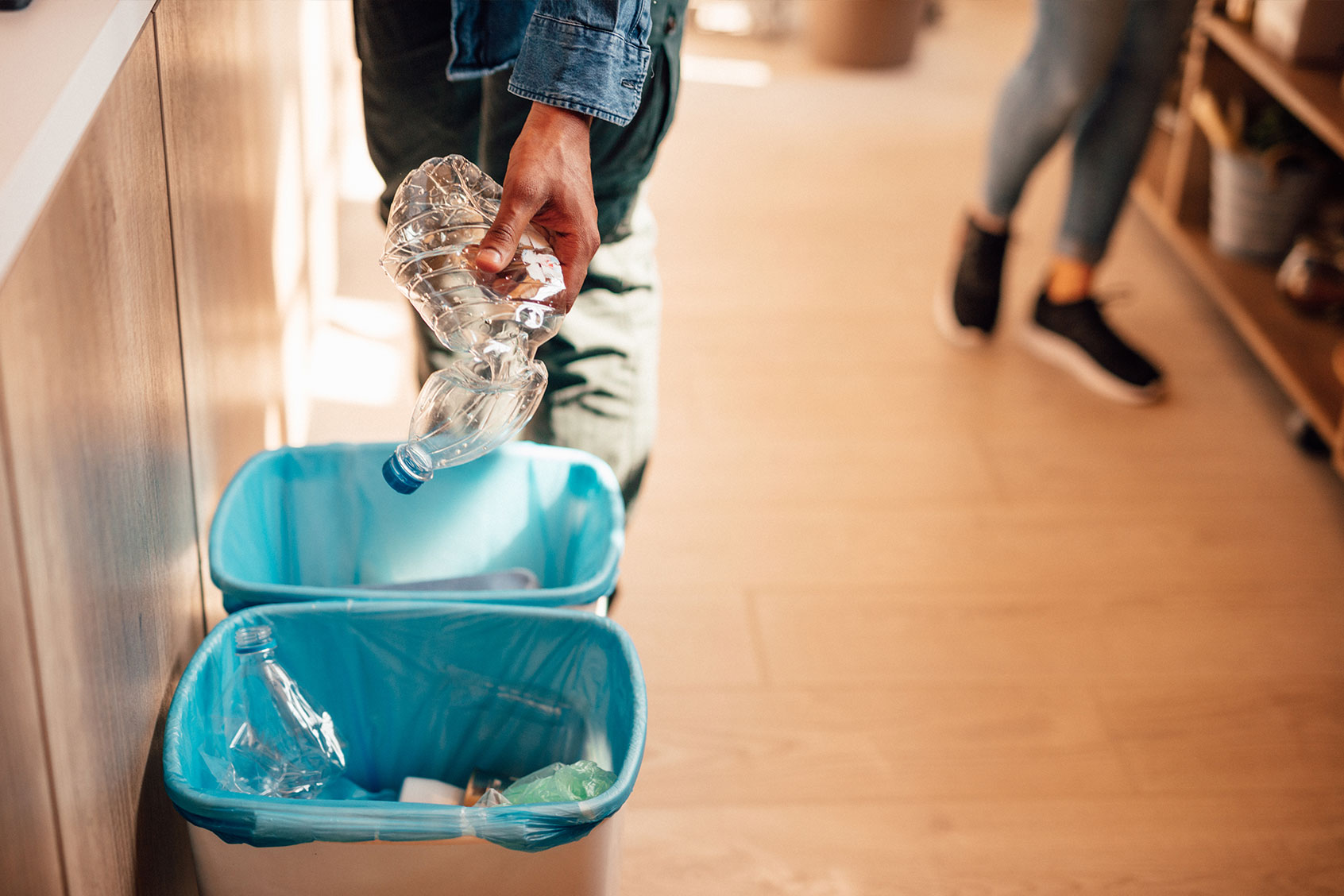As you stand in the grocery store, take a look around you. Almost every item you see is wrapped in something. There are cans of beans, plastic jars of peanut butter, cardboard boxes full of cereal, plastic clamshells holding strawberries or tomatoes, shelf-stable packs containing almond milk or vegetable broth. There are egg cartons made of plastic or cardboard or styrofoam and plastic bags full of pre-washed salad greens, organic bell peppers and ready-to microwave green beans. Head to the coffee shop or fast casual lunch spot and you’ll encounter compostable to-go bowls, paper coffee cups lined with something or other, plastic iced coffee cups, plastic cutlery, plastic water bottles and more.
These very convenient materials — many of them plastic — do their job once and then get thrown away or possibly recycled. But they don’t go away. And the impacts of their production on the environment and on our bodies, do not either.
The Limits of Recycling and Zero Waste Living
Too often, the narrative about plastic focuses entirely on individual avoidance of single use packaging, or recycling these products when we’re done with them. But only a very small percent of what is produced gets recycled, and individual reusables and bulk shopping are right now a small drop in the bucket of the larger retail landscape. It is important to recognize that these efforts don’t hold a complete solution to plastic’s problems. Plastic manufacturing is a major contributor to climate change and environmental pollution, and as plastic production continues to ramp up, it’s clear that big policy changes are needed to prevent those problems from getting even bigger.
A Plastic-Free Future
“Food packaging is one of these wicked problems, right?” says chemist Marty Mulvihill, on our podcast, “What You’re Eating.” We need a safe and convenient way to get food home from the store, and we need easy ways to eat and drink on the go. Packaging plays an important role, says Mulvihill, “but it’s a short term role. And it’s a very intimate role with the food that’s coming to our table.”
How can we do that in a way that does not create so much waste? How can we do it in a way that does not put our bodies at risk from the harmful chemicals and additives used in so much of that packaging? Is it possible to change course, now that we have come to rely on and expect so much of it?
In this episode of “What You’re Eating,” called “Unwrapping Food’s Plastic Problem,” we look at food packaging, with a focus on plastic, since there’s so much of it, and it’s the one with the most problems. We talk to experts about how food packaging is problematic not just for the environment, but also for our health. We ask: is there a future that could exist that was not dominated — and polluted — by plastic? What would it look like and how can we help it come to fruition?

